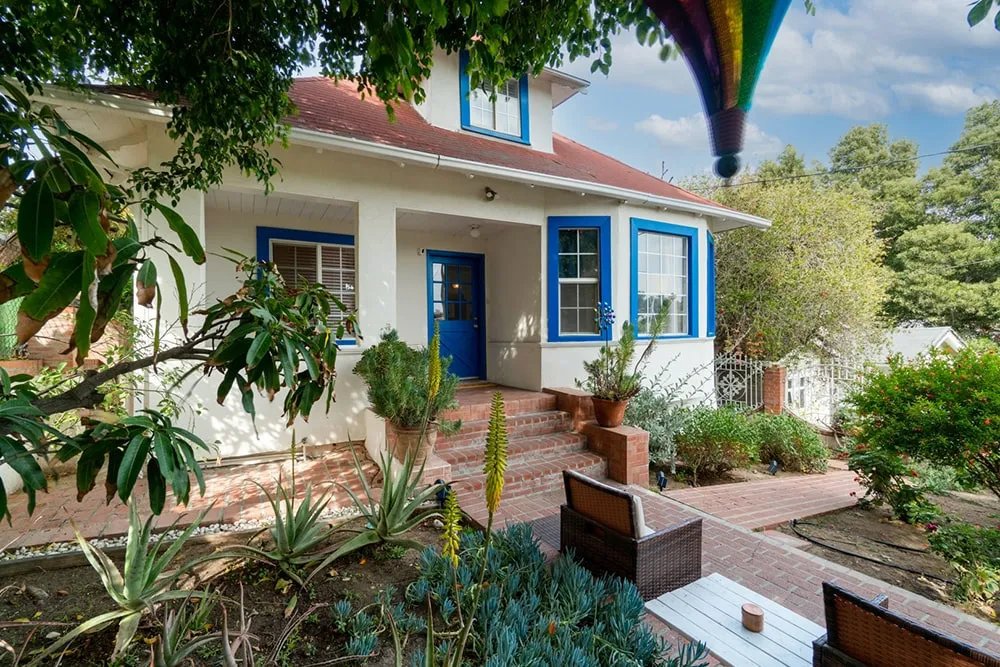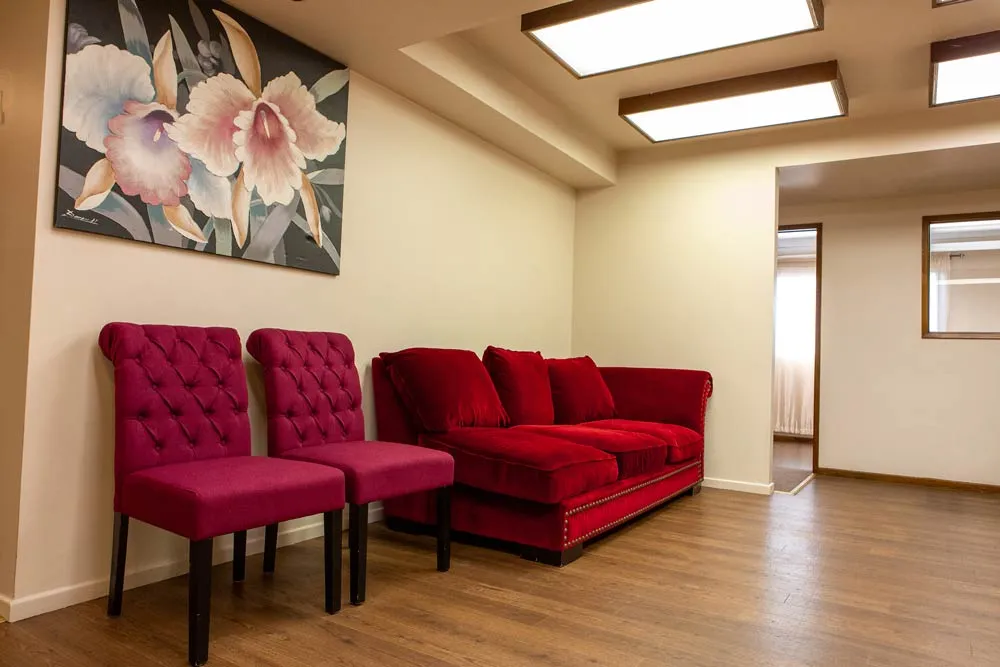Programs for LGBTQ+ individuals offer inclusive and affirming care tailored to unique experiences. Therapy addresses identity, relationships, and mental health challenges, fostering resilience and self-acceptance. Safe spaces ensure participants feel understood and empowered to thrive authentically.
Ads
More Info
Advertisement Disclosure
Our website is funded by advertisers who pay for prominently labeled placements.
Read More84 Rehab Centers were found
Filters
Locations
- Los Angeles(+98)
- Culver City(+14)
- Westlake Village(+13)
- Woodland Hills(+11)
- Beverly Hills(+10)
- Santa Monica(+9)
- Sherman Oaks(+7)
- West Hollywood(+6)
- Malibu(+5)
- Chatsworth(+5)
- Pasadena(+5)
- Encino(+5)
- Redondo Beach(+4)
- Lancaster(+4)
- Reseda(+4)
- Studio City(+4)
- Northridge(+3)
- San Mateo(+3)
- Lynwood(+3)
- Vernon(+3)
- Van Nuys(+3)
- Tarzana(+3)
- North Hollywood(+3)
- Glendale(+3)
- Gardena(+3)
- Riverside(+3)
- Granada Hills(+2)
- Shadow Hills(+2)
- Venice(+2)
- Orange County(+2)
- Pomona(+2)
- West Hills(+2)
- Valley Village(+2)
- Burbank(+2)
- Brentwood(+2)
- Long Beach(+2)
- Sun Valley(+1)
- Torrance(+1)
- San Jacinto(+1)
- San Pedro(+1)
- Upland(+1)
- Whittier(+1)
- Toluca Lake(+1)
- Thousand Oaks(+1)
- Simi Valley(+1)
- Mission Viejo(+1)
- Acton(+1)
- Beaumont(+1)
- Wilmington(+1)
- Panorama City(+1)
- Anaheim(+1)
- Laguna Hills(+1)
- Inglewood(+1)
- Alhambra(+1)
- Rosemead(+1)
- Maywood(+1)
- Manhattan Beach(+1)
- Monterey Park(+1)
- Claremont(+1)
- Covina(+1)
- La Puente(+1)
- Pico Rivera(+1)
- San Fernando(+1)
- Azusa(+1)
- Santa Fe Springs(+1)
- Glendora(+1)
- Agoura Hills(+1)
- El Segundo(+1)
- Duarte(+0)
- Sunland(+0)
- Downey(+0)
- Cudahy(+0)
- El Monte(+0)
- Compton(+0)
- Hermosa Beach(+0)
- Cerritos(+0)
- Calabasas(+0)
- Bellflower(+0)
- Bell Gardens(+0)
- Avalon(+0)
- Arcadia(+0)
- Altadena(+0)
- Paramount(+0)
- South El Monte(+0)
- Walnut(+0)
- West Covina(+0)
- Santa Clarita(+0)
- San Gabriel(+0)
- San Dimas(+0)
- Rolling Hills(+0)
- Orange(+0)
- Hawaiian Gardens(+0)
- Palmdale(+0)
- Norwalk(+0)
- Montebello(+0)
- Lakewood(+0)
- South Pasadena(+0)
- Carson(+0)
- Hawthorne(+0)
Conditions
- Drug(+278)
- Alcohol(+219)
- Mental Health(+195)
- Opioid(+193)
- Cocaine(+184)
- Trauma(+180)
- Methamphetamine(+177)
- Benzodiazepines(+174)
- Heroin(+173)
- Prescription Drugs(+159)
- Depression(+152)
- Anxiety(+149)
- Xanax(+145)
- Synthetic Drugs(+138)
- PTSD(+133)
- Adderall(+131)
- Marijuana(+112)
- Bipolar(+109)
- Ecstasy(+104)
- MDMA(+99)
- Behavioral Health(+93)
- LSD(+93)
- Psychedelics(+91)
- Fentanyl(+71)
- Stress(+71)
- OCD(+69)
- Personality Disorders(+63)
- ADHD(+61)
- Gambling(+38)
- Eating Disorders(+35)
- Anorexia(+34)
- Binge Eating Disorder(+34)
- Bulimia(+33)
- Schizophrenia(+32)
- Gaming(+28)
- Internet Addiction(+27)
- Sex Addiction(+25)
- Burnout(+23)
- Pornography(+22)
- Shopping(+10)
- Narcissism(+8)
Insurances
- BlueCross BlueShield(+129)
- Aetna(+126)
- Anthem(+105)
- Cigna(+105)
- United Healthcare(+66)
- Humana(+63)
- Optum(+53)
- Medicaid(+53)
- MHN(+51)
- Magellan Health(+47)
- Kaiser Permanente(+39)
- Medicare(+31)
- GEHA(+31)
- ComPsych(+29)
- Highmark(+25)
- AmeriHealth(+13)
- Tufts Health(+11)
- Oscar(+9)
- CareFirst(+9)
- Molina Healthcare(+8)
- Intermountain Healthcare(+6)
- Beacon Health Options(+2)
- UMR(+2)
- NYSHIP(+2)
- ILWU(+2)
- Geisinger(+2)
- Empire Life(+2)
- Empire BCBS(+2)
- Bright Health(+2)
- GuideWell(+1)
Therapies

$1,500 - $3,000/Month - 3-6 Months

$20,000 - 30 days

$1,750-$3,500

N/A

$1,50

$7,000
LGBTQ+ Rehab Programs: Affirming Care for Holistic Recovery
LGBTQ+ rehab programs provide specialized support for individuals navigating substance use and mental health challenges within a community that often faces systemic discrimination, trauma, and social stigma. By integrating trauma-informed therapies, peer-driven support, and culturally competent care, these programs create safe, inclusive spaces where LGBTQ+ individuals can heal authentically. Below, we explore the critical components, benefits, and pathways to recovery in LGBTQ+-affirming treatment.
The Need for LGBTQ+-Specific Care
Members of the LGBTQ+ community experience substance use disorders at rates 2–4 times higher than the general population due to minority stress, discrimination, and societal rejection. Over 60% of LGBTQ+ individuals report delaying or avoiding healthcare due to fear of bias, exacerbating mental health and addiction challenges. Specialized programs address these barriers by:
- Affirming Identity: Creating environments where gender expression and sexual orientation are respected and celebrated.
- Addressing Trauma: Providing therapies for internalized shame, family rejection, or violence tied to LGBTQ+ experiences.
- Combating Isolation: Fostering peer connections to reduce loneliness, a key driver of substance use.
Studies show LGBTQ+ individuals in tailored programs engage more deeply in treatment and sustain recovery longer than in generalized settings.
Core Components of Effective LGBTQ+ Programs
Trauma-Informed Therapies
Many LGBTQ+ individuals enter rehab with histories of bullying, discrimination, or abuse. Programs employ evidence-based approaches like:
- Trauma-Focused Cognitive Behavioral Therapy (TF-CBT): Helps reframe negative self-perceptions linked to societal stigma.
- Dialectical Behavior Therapy (DBT): Teaches emotional regulation skills for managing minority stress or anxiety.
- Family Therapy: Repairs relationships with biological families or builds support networks with chosen families.
Peer-Driven Group Support
Small-group sessions focus on LGBTQ+-specific topics such as navigating coming out, addressing chemsex (substance-linked sexual behavior), or coping with religious trauma. These groups reduce isolation and foster accountability through shared experiences.
Dual Diagnosis Care
Over 50% of LGBTQ+ individuals with addiction have co-occurring mental health conditions like depression or PTSD. Integrated treatment plans address both simultaneously, often incorporating medication management and specialized counseling.
Holistic Health Integration
Yoga, art therapy, and mindfulness practices help rebuild self-esteem and manage stress. Nutritional support and sexual health education are often included to address physical wellness gaps caused by addiction.
Benefits of LGBTQ+-Affirming Treatment
- Safety and Validation
Programs prioritize confidentiality and respect, allowing participants to explore their identities without fear of judgment. This safety is critical for transgender and nonbinary individuals, who frequently face healthcare discrimination. - Community Connection
Peer support groups and alumni networks provide lifelong allies who understand the intersection of recovery and LGBTQ+ identity. - Relapse Prevention
Workshops equip individuals with tools to navigate triggers like workplace discrimination, family rejection, or social exclusion. Aftercare plans often include LGBTQ+-specific sober living homes or community resources. - Empowerment
Therapy focuses on reclaiming pride and self-worth, countering internalized homophobia or transphobia. Participants learn advocacy skills to navigate systemic barriers post-treatment.
Choosing the Right Program
Accreditation and Expertise
Look for facilities staffed by clinicians trained in LGBTQ+ health and certified by organizations like CARF or The Joint Commission. Verify the program offers trauma-informed care and has experience with diverse gender identities.
Customized Care Options
- Inpatient Programs: Provide structured, immersive care for severe addiction or co-occurring disorders.
- Outpatient Programs (IOP): Allow flexibility for work or family commitments while attending therapy.
Aftercare Commitment
Strong programs connect participants to LGBTQ+-friendly therapists, support groups (e.g., Queer Recovery Anonymous), and crisis hotlines post-discharge.
Redefining Recovery as an Act of Resistance
LGBTQ+ rehab reframes healing as a radical act of self-affirmation in a world that often marginalizes queer identities. If you or a loved one is seeking affirming care, explore accredited LGBTQ+ rehab programs that prioritize cultural competence, peer support, and holistic healing. Consult our directory of vetted LGBTQ+-inclusive centers.
Frequently Asked Questions
Are LGBTQ+ rehabs inclusive of nonbinary or transgender individuals?
How do you address trauma related to discrimination or coming out?
Are partners or chosen family allowed to visit?
Do you provide HIV/AIDS or PrEP education?
Ads
More Info
Advertisement Disclosure
Our website is funded by advertisers who pay for prominently labeled placements.
Read More






































